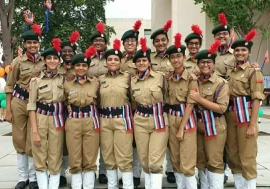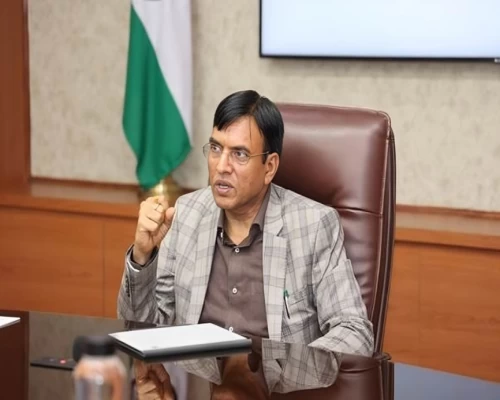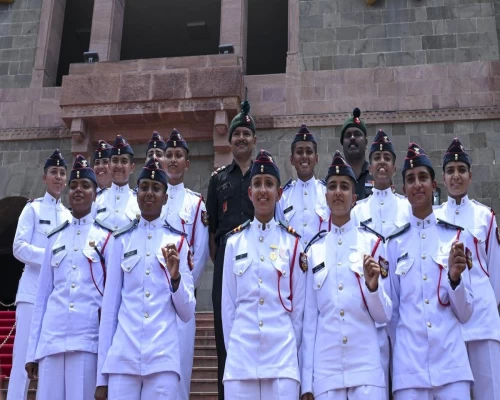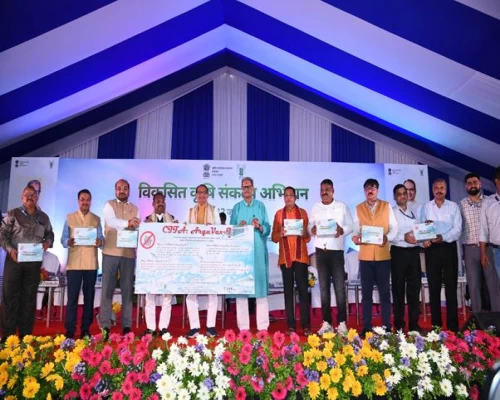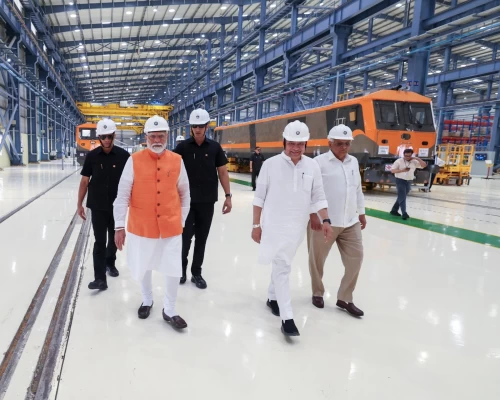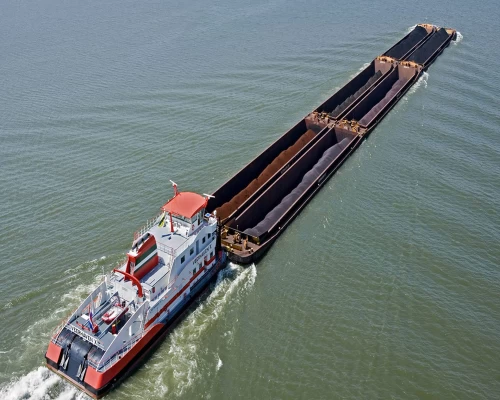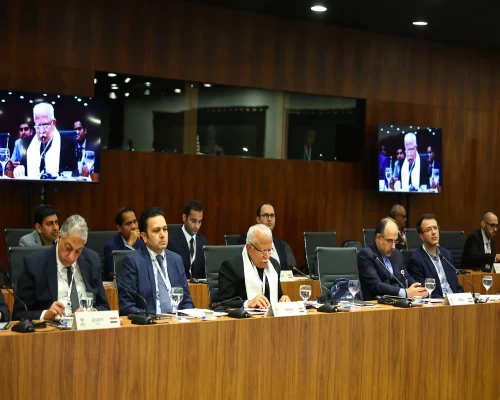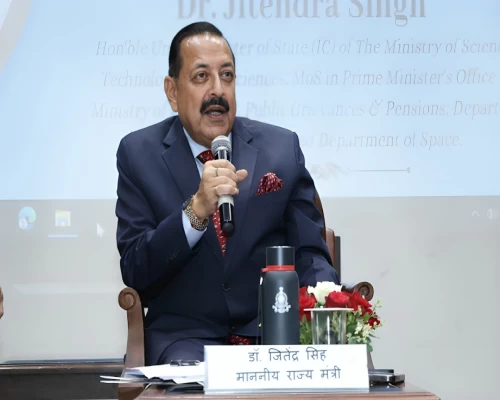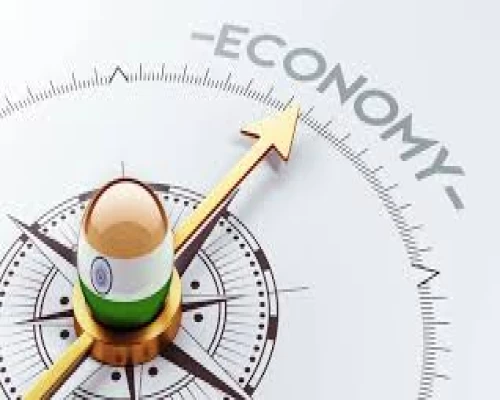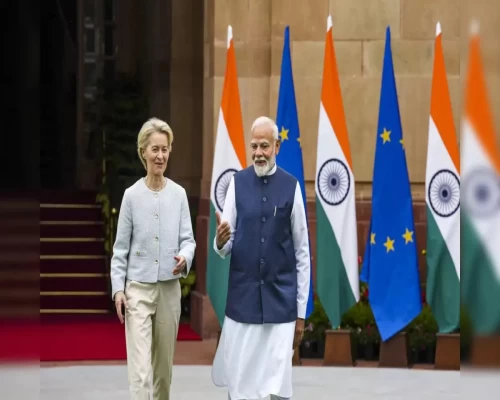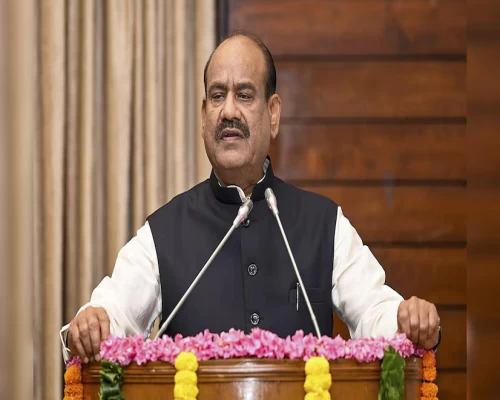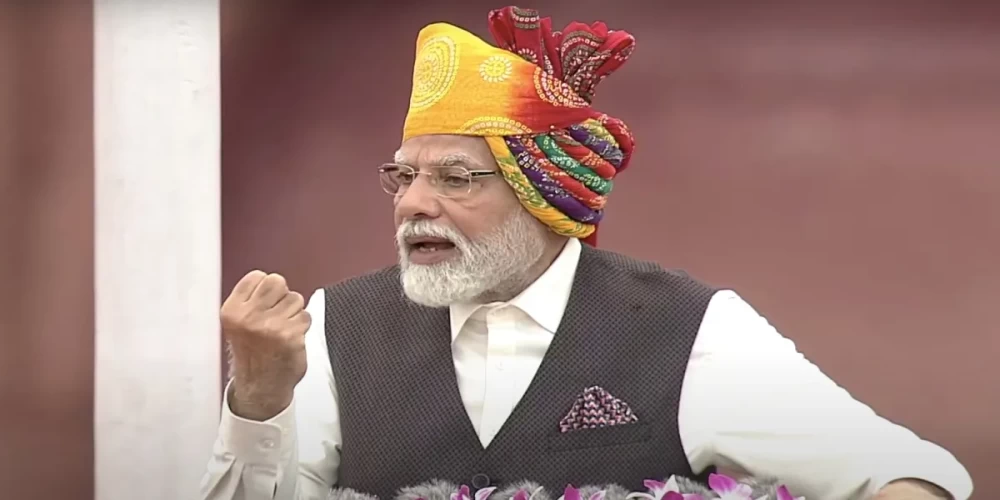
Surat: The Prime Minister addressed the programme marking the launch of the ‘Jal Sanchay Jan Bhagidari’ initiative from Surat, Gujarat, via video conferencing on Friday. This programme involves the construction of approximately 24,800 rainwater harvesting structures across the state to enhance rainwater harvesting and ensure long-term water sustainability.
During his address, the Prime Minister highlighted that an important campaign is commencing from Gujarat, led by the Ministry of Jal Shakti. He reflected on the challenges posed by the recent monsoon season, noting that nearly all regions in the country faced significant adversities. The Prime Minister recalled witnessing unprecedented rainfall in various tehsils during his tenure as Chief Minister of Gujarat and acknowledged the extreme crisis faced by the state this time. He commended the people of Gujarat and the nation for their solidarity and mutual support in these dire situations, noting that many parts of the country are still affected by the monsoon.
The Prime Minister emphasised that water conservation is not merely a policy but an effort and a virtue, embodying both generosity and responsibility. He stated that future generations will assess us based on our water conservation efforts, as water is not just a resource but vital to life and humanity's future. He expressed satisfaction with the initiation of public participation in water conservation efforts and extended his best wishes to the Ministry of Jal Shakti, the Government of Gujarat, and all stakeholders involved.
Highlighting the need for environmental and water conservation, the Prime Minister pointed out that India holds only 4 percent of the world's freshwater. Despite having several significant rivers, large areas of the country face water scarcity, and the water table is declining rapidly. He stressed that water scarcity, coupled with climate change, has greatly impacted people's lives.
The Prime Minister praised India's potential to find solutions for its own and the world's water challenges, citing ancient scriptures that recognise water and environmental conservation as integral to India’s traditional consciousness. He described water as a divine gift and noted that rivers such as the Ganga, Narmada, Godavari, and Kaveri are revered as mothers. He quoted ancient scriptures to highlight the importance of saving and donating water as a profound act of service, emphasising that India’s ancestors understood the significance of water and environmental conservation.
Discussing the ‘Jal Sanchay Jan Bhagidari’ initiative, the Prime Minister noted its successful efforts in Gujarat, including the completion of the Sardar Sarovar Dam and the Sauni Yojna, which redirected water from surplus areas to those facing shortages. He expressed satisfaction with the visible results of these efforts.
The Prime Minister highlighted that water conservation is a social commitment requiring active public participation. He acknowledged that although numerous water-related projects have been undertaken, significant results have only emerged in the past decade. He credited the establishment of the Ministry of Jal Shakti for breaking down silos and advancing the government's commitment to water conservation. He noted the progress made through the Jal Jeevan Mission, which has increased the number of households with tap water connections from 3 crore to over 15 crore, with clean tap water reaching more than 75 percent of households. He praised local Jal Samitis, particularly the contributions of women, to the mission.
The Prime Minister noted that the Jal Shakti Abhiyan has become a national mission, involving individuals from all sectors, including civil society and panchayats. He highlighted the success of the Amrit Sarovar initiative and the Atal Bhujal Yojana in managing water resources. He also mentioned the ‘Catch the Rain’ campaign and the ‘Namami Gange’ initiative as examples of public engagement in water and river conservation.
The Prime Minister urged citizens to support the ‘Ek Ped Maa ke Naam’ campaign, which promotes afforestation to increase groundwater levels. He emphasised that the participation of all citizens is crucial to making water conservation efforts a public movement.
The Prime Minister called for urgent action on water conservation, urging the adoption of the mantra ‘Reduce, Reuse, Recharge, and Recycle’ to secure the nation’s water future. He stressed the importance of innovative approaches and modern technologies, including water-efficient farming techniques like drip irrigation and the ‘Per Drop More Crop’ campaign. He encouraged states to accelerate water conservation practices and adopt both traditional and modern methods.
He noted that a robust water economy depends on clean water availability and the success of conservation efforts, highlighting the employment and health benefits of the Jal Jeevan Mission. He acknowledged the contributions of industries towards water conservation, especially those meeting Net Zero Liquid Discharge Standards and engaging in water recycling. He commended Gujarat for its innovative use of CSR in water conservation and announced a new mission to create 24,000 additional recharge structures.
In conclusion, the Prime Minister expressed confidence that India would become a global leader in water conservation, stating, “Together, we will make India a beacon of water conservation for all of humanity.”
The Chief Minister of Gujarat and the Union Minister of Jal Shakti were virtually present for the event.
Background
The ‘Jal Sanchay Jan Bhagidari’ initiative aims to conserve water through strong community partnership and ownership, guided by a whole-of-society and whole-of-government approach. Building on the success of the Jal Sanchay initiative led by the Government of Gujarat, the Ministry of Jal Shakti, in collaboration with the State Government, is launching this new initiative. The Government of Gujarat is mobilising citizens, local bodies, industries, and other stakeholders to ensure a water-secure future.
The programme includes the construction of approximately 24,800 rainwater harvesting structures across the state with community involvement. These structures will enhance rainwater harvesting and ensure long-term water sustainability. /BI


